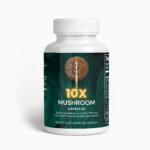
“Age-Specific Concerns: The Impact of Supplements on Different Health Conditions”
In today’s fast-paced world, health and wellness have become a top priority for people of all ages. With an increasing awareness of the importance of nutrition and the role of supplements in supporting various health conditions, it’s important to consider the impact of supplements on different age groups. Whether you’re an athlete looking to boost your performance, a senior seeking to improve your cognitive function, or a new mom looking to support your child’s growth and development, the right supplements can make a big difference. In this article, we’ll explore the age-specific concerns related to supplements and how they can help support healthy living. With the right knowledge and guidance, anyone can benefit from the right supplements, regardless of age or health condition. So let’s dive in and explore the world of supplements and their impact on different health conditions!
1. Introduction: Understanding the Importance of Age-Specific Supplements
Supplements are an excellent addition to our daily nutritional routine. However, not all supplements work for everyone. As we age, our bodies change, and our nutritional needs change too. Hence, it is essential to tailor supplements according to our age requirements. Age-specific supplements can help against early aging, improve digestion, and mental health.
Our bodies require specific nutrients as we proceed through different phases of life. Age-specific supplements provide us with the necessary nutritional support that we may not get from our diet. For instance, older adults require more calcium and vitamin D to maintain bone health as opposed to younger adults. Similarly, middle-aged individuals require specific supplements that support healthy cognition, eye-sight, and heart health.
Incorporating age-specific supplements into your daily routine provides you with many health benefits. These supplements are designed according to our body’s changing nutritional requirements, ensuring that the nutrients are delivered at the right time and in the right amount. Therefore, it makes sense to choose age-specific supplements that focus on your body’s unique needs. Consult a healthcare professional or nutritionist to identify the best supplements for your age.
2. Addressing Unique Health Concerns in Young Adults: Boosting Cognitive Function and Mood
Young adulthood is a crucial stage of life where individuals are expected to make important decisions and navigate complex situations. However, poor cognitive function and mood can significantly impact their ability to perform these tasks, leading to negative consequences. To address these unique health concerns and boost mental well-being, it is crucial to adopt healthy lifestyle practices.
One of the most effective ways to improve cognitive function and mood is through regular physical activity. Exercise has been shown to increase blood flow to the brain, improve memory retention, and enhance mood-regulating neurotransmitters. Engaging in activities such as jogging, hiking, or yoga can have immense benefits for young adults, both physically and mentally.
Another crucial aspect to improving cognitive function and mood in young adults is proper nutrition. A diet rich in nutrient-dense foods such as fruits, vegetables, lean proteins, and whole grains can improve brain function, increase energy levels, and enhance mood. Consuming foods high in omega-3 fatty acids, such as fatty fish, nuts, and seeds, have been found to improve cognitive function and reduce symptoms of depression and anxiety.
In conclusion, boosting cognitive function and mood in young adults requires a holistic approach that includes regular physical activity, a nutrient-dense diet, and adequate sleep. Adopting healthy lifestyle practices can not only improve mental well-being but also promote overall physical health. It is crucial to prioritize these habits early on in life to set a foundation for a healthy and fulfilling future.
3. Supporting Bone and Joint Health in Middle-aged Adults: The Role of Calcium and Vitamin D
Middle-aged adults need to be proactive in supporting their bone and joint health through proper nutrition, exercise, and lifestyle habits. Among the essential nutrients that aid in bone health, calcium, and vitamin D are the most crucial. Calcium is the building block of our bones, while vitamin D helps the body absorb and use calcium.
Calcium is present in many foods, including dairy products, green leafy vegetables, and fortified foods. However, many middle-aged adults may not be getting enough calcium from their diet alone. In such cases, calcium supplements can help meet the daily recommended intake of 1,000-1,200 mg per day. Besides, consuming vitamin D-rich foods like fatty fish, eggs, and fortified foods, or taking supplements can ensure adequate vitamin D intake.
Apart from promoting bone health, calcium and vitamin D have other benefits that support overall health. Studies have linked vitamin D deficiency to an increased risk of various health conditions, including heart disease, diabetes, and cancer. Similarly, calcium has been found to play a role in blood pressure regulation and reducing the risk of colon cancer. Therefore, it is essential to ensure adequate intake of these nutrients for overall well-being.
4. Maintaining Heart Health in Senior Adults: Omega-3 Fatty Acids and CoQ10
Omega-3 fatty acids are known for their numerous health benefits, including improving cardiovascular health. In senior adults, having a healthy heart is crucial. Research has shown that consuming omega-3 fatty acids can significantly reduce the risk of cardiovascular disease. This nutrient can be found in fatty fish such as salmon, mackerel, and tuna, as well as in supplements like fish oil.
In addition to omega-3 fatty acids, Coenzyme Q10 (CoQ10) is also essential for maintaining heart health in senior adults. This nutrient is naturally produced by the body, but levels decrease as we age. CoQ10 acts as an antioxidant and helps to convert food into energy. Studies have shown that CoQ10 supplements can lower blood pressure, reduce the risk of heart disease, and improve overall cardiovascular health.
To ensure that you are getting enough of these vital nutrients, consider adding fatty fish to your diet or taking supplements. It is essential to speak with your healthcare provider before adding any supplements to your routine. Additionally, a diet rich in fruits, vegetables, whole grains, and lean proteins can also help to support heart health. Remember, taking care of your heart is crucial for maintaining overall health and longevity, so make sure to prioritize it in your daily habits.
5. The Impact of Supplements on Digestive Health: Probiotics and Prebiotics for All Ages
The Importance of Supplements for Digestive Health
Good digestive health is essential for overall well-being, and supplements can play a crucial role in maintaining it. Probiotics and prebiotics are two types of supplements that can support digestive health and offer numerous benefits.
Probiotics
Probiotics are live bacteria and yeasts that are beneficial for the digestive system. These microorganisms help balance the natural gut flora, which can be disrupted by stress, illness, and antibiotics. Probiotics can also help improve the symptoms of digestive disorders, such as irritable bowel syndrome (IBS) and inflammatory bowel disease (IBD).
- Some of the benefits of probiotics include:
- Reducing the severity of diarrhea, constipation, and bloating
- Strengthening the immune system
- Managing lactose intolerance
- Preventing and treating vaginal and urinary tract infections
Prebiotics
Prebiotics are non-digestible fibers that serve as food for the probiotics in the gut. They help stimulate the growth and activity of the good bacteria, which can have a positive effect on digestive health.
- Some of the benefits of prebiotics include:
- Improving digestion and bowel regularity
- Lowering inflammation in the gut and throughout the body
- Reducing the risk of certain diseases, such as colon cancer and type 2 diabetes
Probiotics and prebiotics can be found in certain foods, such as yogurt, kefir, sauerkraut, and onions. However, for those who don’t regularly consume these foods, supplements can be a convenient and effective alternative. Talk to your healthcare provider about the right supplements for you and your family’s digestive health needs.
6. Addressing Chronic Conditions with Supplements: The Benefits of Turmeric and Ginger
Turmeric and ginger have been used for centuries in traditional medicine for their potent anti-inflammatory and antioxidant properties. Recent studies have shown that these two herbs can also be effective in addressing certain chronic conditions.
Curcumin, the active ingredient in turmeric, has been found to have powerful anti-inflammatory effects that can help reduce joint pain and support overall joint health. It is also believed to have neuroprotective properties that can help improve brain function and reduce the risk of Alzheimer’s disease.
Ginger, on the other hand, has been found to be effective in reducing nausea and vomiting associated with chemotherapy, motion sickness, and pregnancy. It can also help reduce muscle pain and soreness after exercise, making it a popular supplement among athletes and fitness enthusiasts.
Incorporating turmeric and ginger into your daily supplement regimen can provide a variety of health benefits, from improved joint health to reduced nausea and muscle pain. However, it is important to keep in mind that these supplements are not a substitute for medical treatment and should be used in conjunction with a healthy diet and lifestyle. Be sure to consult with your healthcare provider before starting any new supplement regimen.
7. Conclusion: Age-Specific Supplements – A Vital Component of Overall Health and Wellness
It is crucial to acknowledge that age-specific supplements play a significant role in overall health and wellness. A balanced diet and an active lifestyle are not sufficient in providing all the necessary nutrients, which every individual’s body requires.
Supplements are an excellent way to make sure the body receives the necessary nutrients. They are designed to provide essential vitamins, minerals, and other essential components that the human body needs to function correctly, especially as one gets older. Some supplements can also reduce the risk of developing certain diseases and cognitive decline associated with aging.
It is important to note that not all supplements are made equal. Age-specific supplements are tailored to meet the unique nutritional needs of each stage of life, from adolescents to elderly adults. Therefore, it is essential to seek professional advice on the apropriate supplements for one’s age to ensure that you get the right nutritional balance.
In conclusion, supplements are a useful addition to any diet for people of all ages, however, understanding how they may interact differently with health conditions of different age groups is essential to ensure its effectiveness and safety. With this in mind, consulting with a physician before taking any supplement is highly recommended, as they can more accurately assess individual health needs for each particular age group.

























